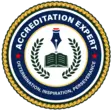
Introduction
Curriculum is at the heart of every educational institution’s credibility. Whether launching a new certificate program, seeking state approval for colleges, or preparing for DEAC Accreditation, institutions rely on one role more than any other: the curriculum development specialist.
These professionals ensure that programs are mission-fit, regulator-ready, and aligned with both student expectations and workforce demand. In today’s competitive higher education environment, the role has expanded beyond writing syllabi; it now includes compliance mapping, LMS integration, and continuous improvement cycles.
At Accreditation Expert Consulting (AEC), we’ve supported more than 200 institutions with dedicated curriculum development services. This guide explains what a curriculum development specialist does, why they’re essential in 2025, and how to work with experts who understand both accreditation consulting and instructional design.
What Is a Curriculum Development Specialist?
A curriculum development specialist is a higher education professional who designs, evaluates, and maintains academic programs to meet regulatory, accreditation, and institutional goals.
Key responsibilities include:
- Designing program learning outcomes (PLOs) and course learning outcomes (CLOs).
- Aligning curriculum with state licensing agencies (e.g., BPPE approval in California, THECB approval in Texas).
- Preparing submission-ready exhibits for institutional accreditation support (DEAC, ACCET, COE).
- Integrating programs into LMS platforms (Canvas, Moodle, Populi).
- Ensuring accessibility (WCAG 2.2) and compliance with online program requirements.
In short, they bridge the gap between academic vision and regulatory approval.
Related: Curriculum Development Services for Higher Education
Why Curriculum Development Specialists Are Essential in 2025

Education is changing rapidly. Institutions must respond to:
- Regulatory pressure from state agencies and national accreditors.
- Online program compliance demands are increasing as more institutions expand hybrid and digital offerings.
- Employer expectations for stackable credentials and micro-credential pathways.
- Global accreditation frameworks, such as EQual Canada accreditation , require international alignment.
Without a specialist, institutions risk:
- Submitting incomplete applications.
- Misaligned CLO/PLO mappings.
- Accreditation delays, probation, or denials.
At AEC, our specialists ensure that every program is accreditor-ready, market-relevant, and student-centered.
Core Responsibilities of a Curriculum Development Specialist
Program Architecture
- Define mission-fit program structures.
- Establish credit and clock-hour policies.
- Build stackable pathways (certificate → diploma → degree).

Course-Level Design
- Develop syllabi, assessments, and rubrics.
- Ensure CLOs map to PLOs and regulatory frameworks.
- Embed competency-based learning models.
Compliance Mapping
- Crosswalk outcomes with accreditation standards (for example, DEAC, ACCET).
- Prepare state approval exhibits (catalogs, enrollment agreements).
- Manage documentation for the U.S. Dept of Education and CHEA recognition.
LMS & Technology Integration
- Package content for LMS platforms (Canvas, Moodle, Blackboard, Populi).
- Ensure SCORM/xAPI compliance.
- Add accessible media and alt-text.
Continuous Improvement
- Establish data cycles and evaluation plans.
- Coordinate SME reviews and faculty workshops.
- Provide dashboards for ongoing program monitoring.
How Specialists Support Accreditation & State Approval
State Licensing: For example, BPPE approval in California or THECB approval in Texas requires curriculum documents, catalogs, and outcomes mapping. Specialists prepare these to avoid rejections.
Accreditation Consulting: Specialists create the core curriculum exhibits for DEAC accreditation, ACCET, or COE submissions.
Programmatic Accreditation: In healthcare, specialists prepare materials for CAAHEP; in Canada, they support EQual Canada accreditation.
AEC specialists combine instructional design expertise with compliance knowledge so institutions can move smoothly from concept to approval.
Related: State Approval Services for Colleges

Case Studies & Success Stories
Case Study 1: Vocational Healthcare Diploma
AEC’s curriculum specialists developed course outcomes, lab modules, and compliance crosswalks for a healthcare school. Result: state approval in one cycle and 100% enrollment capacity.
Case Study 2: Online Master’s Degree
AEC specialists mapped CLOs to accreditor standards, prepared SER exhibits, and packaged LMS-ready builds for Canvas. Result: DEAC accreditation without conditions.
FAQs
What is a curriculum development specialist?
A professional who designs and maintains programs to meet academic, regulatory, and accreditation standards.
Do institutions need curriculum specialists for state approval?
Yes. Agencies like BPPE and THECB require detailed curriculum documents. Specialists ensure these are regulator-ready.
How do curriculum specialists support accreditation?
They prepare self-study exhibits, outcome crosswalks, and continuous improvement plans for accreditors like DEAC accreditation or ACCET.
Can specialists work with online programs?
Absolutely. Specialists design online program compliance frameworks for hybrid, asynchronous, and fully digital institutions.
Conclusion
A curriculum development specialist is essential in today’s education landscape. From state approval for colleges to institutional accreditation support, specialists ensure programs are structured, compliant, and ready for long-term success.
At Accreditation Expert Consulting, our specialists bring 19+ years of experience and a track record of supporting 200+ institutions across the U.S., Canada, and beyond.
Schedule your 30-minute consultation today.
📧 info@AccreditationXpert.com
📞 1-833-232-1400
🌐 www.AccreditationXpert.com (That’s X-P-E-R-T)




